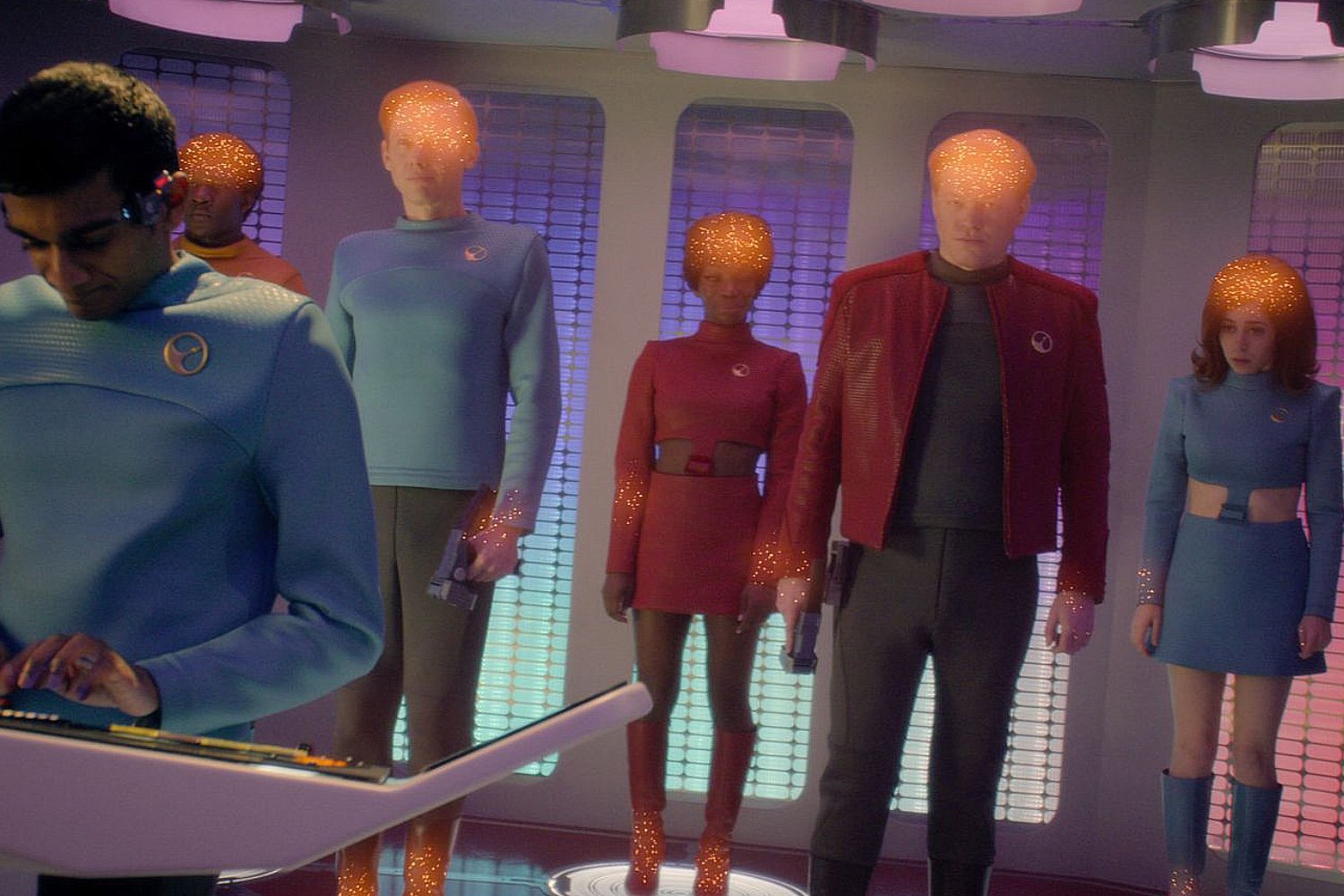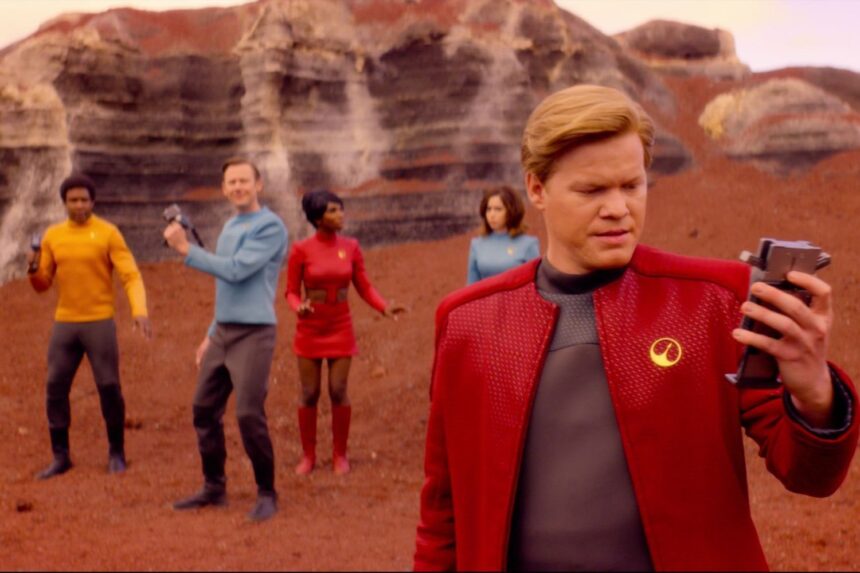Somehow it’s been eight years since we saw the crew of the USS Callister rebel against their cruel captain, liberate themselves from his tightly controlled pocket universe, and set out into the wider galaxy. What happens next will be explored when Black Mirror returns April 10 with “USS Callister: Into Infinity,” the dystopian series’ first sequel episode.
But before the Callister‘s next chapter arrives, a re-watch of the original episode—which explicitly riffs on Star Trek but also explores workplace culture, toxic masculinity, and ideas about divided consciousnesses that pre-date Severance—seemed to be in order. No surprise: the season four entry is still one of Black Mirror‘s best ever, owing to its blend of outstanding storytelling, performances, and special effects.
It also completely nails that signature quality that nearly all Black Mirror episodes seek to incorporate, exploring a technological innovation that sounds absolutely fantastic and wonderful until its dark side is exposed.
At 76 minutes, “USS Callister” is on the longer side (“Into Infinity” is a shade longer), but like most Black Mirror episodes the runtime is perfectly tailored to the story’s needs. It opens with the promised full-on Star Trek homage, starring Robert Daly (Jesse Plemons) as the heroic and daring Captain Kirk-like leader of a crew battling an alien villain. The costumes are outrageously retro, all the woman line up to kiss their captain when the mission ends successfully, and everyone is just a little too fawning and submissive.
We soon find out why everything looks so retro-shiny: this is actually an immersive game called Infinity, modded by its designer—the real Robert Daly—to exactly replicate his favorite vintage TV show, Space Fleet. It’s an amazing idea on its surface, allowing him to step inside the show and experience his own adventures.
But, of course, there’s a sinister undercurrent. Why’s the crew so subservient? Well, Robert has molded each character after real-life co-workers who’ve displeased him for some reason or another. They may disrespect him in the office, but their virtual selves cower at his every command.
There might be a version of this story in which Robert’s Infinity customization is a cathartic way to blow off indignities and frustrations. Though he created Infinity and co-founded the company, Callister Inc., that produces it, he’s so socially awkward everyone treats him as an outsider at best and an utter weirdo at worst. And as fans well know, Black Mirror loves a story involving revenge against bullies.
But “USS Callister” seeks no sympathy for Robert. His creepy fixation on his co-workers—the only human interaction in his life, apart from the pizza delivery guy—extends beyond simply recreating them in VR. Instead, he’s sneakily stolen their DNA and used it to create digital clones that exist only in his personally modified version of Infinity.
We learn first-hand what that entails when “new girl in the office” Nanette Cole (Cristin Milioti), who’d initially admired Robert for his coding skills before being warned by a female co-worker to give him a wide berth, wakes up in a skimpy Space Fleet uniform aboard the USS Callister, having no idea what the hell is going on. To put it in Severance terms, she’s the “innie” to the “outie” Nanette that still exists in the real world. But unlike Severance, this newly created Nanette has every memory of Nanette herself, right up until the moment when she just opened her eyes.
“Am I dreaming?” she asks everyone else; they all look like the people she’s started to get to know at the office, except they’re all made over in Space Fleet style. Her next question is “How do we get out?”
While everyone else has been tortured into submission by this point by Daly, this world’s all-powerful “asshole god,” Nanette is determined to escape this hell, where she feels like her actual self, but is instead a digital clone doomed to suffer eternal agony. She manages to rally the others—again, like Severance, they have to face the idea that their only path to freedom may be ceasing to exist. But rather than stepping into an elevator, they’ll have to maneuver the USS Callister into a wormhole created by an impending Infinity software update.

Nanette’s plan is ingenious—it involves blackmailing her real-world self as well as the unwitting help of that pizza delivery guy—and it’s no spoiler to say it works, especially with that sequel almost here. But maybe the niftiest trick “USS Callister” pulls off is that as it races toward its climax, it transcends the intentionally fake-feeling Star Trek rip-off controlled by Daly and becomes, for a few scenes at least, its own authentically exciting space adventure.
Nanette, digital clone or otherwise, makes for a fantastic Space Fleet captain, actually—and thinking back on the episode’s closing moments makes “Into Infinity” even more exiting to anticipate.
You can stream “USS Callister” and the rest of Black Mirror seasons 1-6 on Netflix now; Black Mirror season seven, which includes “USS Callister: Into Infinity,” arrives April 10.
Want more io9 news? Check out when to expect the latest Marvel, Star Wars, and Star Trek releases, what’s next for the DC Universe on film and TV, and everything you need to know about the future of Doctor Who.
Read the full article here












